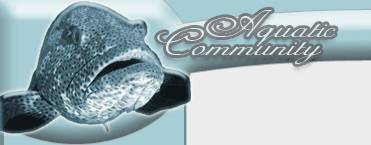Congestive heart failure in dogs
What is canine congestive heart failure?
Canine congestive heart failure is the name for any disease that makes the heart of the dog unable to put out sufficient amounts of blood. Congestive heat failure can be caused by several different diseases (including bacterial infections and heartworm), sudden injury, heat stroke, electric shock, high blood pressure, or developmental heart abnormalities. Congestive heart failure is called congestive since the malfunctioning of the heart causes fluid retention in the lungs and other parts of the body.
All dogs regardless of breed can suffer from congestive heart failure. Giant dog breeds are however more prone to heart failure caused by cardiomyopathy. In really small dog breeds, such as Papillons and the Cavalier King Charles spaniel, congestive heart failure is instead often the result of degenerated valve tissue. If you keep a breed that is extra susceptible to heart problems, ask your veterinarian or a reputable breeder for more advice about how your can reduce the risk of heart disease in your dog.
Symptoms of canine congestive heart failure
Heart failure and the progression of heart failure will normally increase the activity of the nervous system in dogs. It will also cause higher concentrations of certain hormones. The five most common symptoms of congestive heart failure in a dog are shortness of breath, difficulty breathing, coughing, fatigue, and weight loss. The exact symptoms will depend on which side of the heart that is affected. If your dog suffers from left-sided congestive heart failure, it can lead to coughing, fainting and difficulty breathing since fluids will accumulate in the lungs. If your dog develops right-sided heart failure, fluid can accumulate in the abdomen and around the lungs. It can also lead to peripheral oedema.
Congestive heart failure treatment for dogs
The treatment for congestive heart failure will naturally greatly depend on the underlying cause. The acute treatment will often consist of nitroglycerin and diuretic medication. Administering oxygen can also be necessary. Nitroglycerin is administered in the form of a paste and can be spread on any hairless area of the dog, including the ears and the abdomen.
Diuretic medication will force excess water out of the body of the dog. The vet can for instance use medicine containing the active ingredient Furosemide, e.g. Lasix®. Spironolactone is another commonly used diuretic.
If fluid has pooled around the lungs, the veterinarian can be forced to use a small needle to drain the fluid. This is known as thoracocentesis.
Angiotensin converting enzyme inhibitors will block some of the damaging hormones that are found in the heart after congestive heart failure, and these enzyme inhibitors will also prevent salt retention in the dog. Examples of such medications are Enalapril (brand name Enacard) and Benazepril.
Digoxine have proven successful in the treatment of dogs suffering from congestive heart failure. Digoxine is found in medications such as Lanoxin and Cardoxin.
Keeping your dog on a diet low in sodium is important to prevent congestive heart failure. Dietary supplements can also be helpful. Ask your veterinarian for more advice regarding the situation for your specific dog.
Cardiovascular and circulatory problems in dogs: (click for more info)
Aortic stenosis in dogs
Congestive heart failure in dogs
Degenerative mitral valve disease in dogs
Dilated cardiomyopathy in dogs
Heart valve dysplasia in dogs
Hemolytic anemia in dogs
Patent ductus arteriosus in dogs
Pericardial effusion in dogs
Pulmonary hypertension in dogs
Pulmonic stenosis in dogs
Thrombocytopenia in dogs
Ventricular septal defect in dogs
Atrial septal defect in dogs
Tetralogy of Fallot in dogs
Von Willebrand disease in dogs
